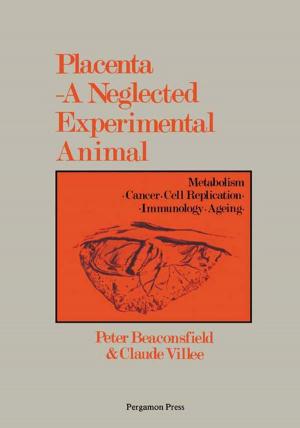Nutritional Composition of Fruit Cultivars
Nonfiction, Science & Nature, Technology, Food Industry & Science, Health & Well Being, Medical| Author: | ISBN: | 9780124080645 | |
| Publisher: | Elsevier Science | Publication: | October 16, 2015 |
| Imprint: | Academic Press | Language: | English |
| Author: | |
| ISBN: | 9780124080645 |
| Publisher: | Elsevier Science |
| Publication: | October 16, 2015 |
| Imprint: | Academic Press |
| Language: | English |
Nutritional Composition of Fruit Cultivars provides readers with the latest information on the health related properties of foods, making the documentation of the nutritive value of historical cultivars especially urgent, especially before they are lost and can't be effectively compared to modern cultivars.
Because there is considerable diversity and a substantial body of the compositional studies directed towards commercial varieties, this information is useful for identifying traits and features that may be transposed from one variety to another.
In addition, compositional and sensory features may also be used for commercialization and to characterize adulteration. Detailed characterization of cultivars can be used to identify "super-foods". Alternatively, unmasked historical cultivars may be the focus of reinvigorated commercial practices.
Each chapter in this book has sections on the botanical aspects, the composition of traditional or ancient cultivars, the composition of modern cultivars, a focus on areas of research, the specialty of the communicating author of each chapter, and summary points.
- Presents the botanical aspects and composition of both traditional and modern plants, including in-depth insight into current research, and overall summary points for each fruit for consistent comparison and ease of reference
- Provides important information in the consideration of preservation, transference, or re-introduction of historical/traditional cultivars into current crop science
- Provides details on compositional and sensory parameters, from aroma and taste to micro- and macronutrients
- Includes data on nutraceuticals and novel components that have proven to impact on, or be important in, food quality, storage, processing, storage, and marketing
Nutritional Composition of Fruit Cultivars provides readers with the latest information on the health related properties of foods, making the documentation of the nutritive value of historical cultivars especially urgent, especially before they are lost and can't be effectively compared to modern cultivars.
Because there is considerable diversity and a substantial body of the compositional studies directed towards commercial varieties, this information is useful for identifying traits and features that may be transposed from one variety to another.
In addition, compositional and sensory features may also be used for commercialization and to characterize adulteration. Detailed characterization of cultivars can be used to identify "super-foods". Alternatively, unmasked historical cultivars may be the focus of reinvigorated commercial practices.
Each chapter in this book has sections on the botanical aspects, the composition of traditional or ancient cultivars, the composition of modern cultivars, a focus on areas of research, the specialty of the communicating author of each chapter, and summary points.
- Presents the botanical aspects and composition of both traditional and modern plants, including in-depth insight into current research, and overall summary points for each fruit for consistent comparison and ease of reference
- Provides important information in the consideration of preservation, transference, or re-introduction of historical/traditional cultivars into current crop science
- Provides details on compositional and sensory parameters, from aroma and taste to micro- and macronutrients
- Includes data on nutraceuticals and novel components that have proven to impact on, or be important in, food quality, storage, processing, storage, and marketing















